-
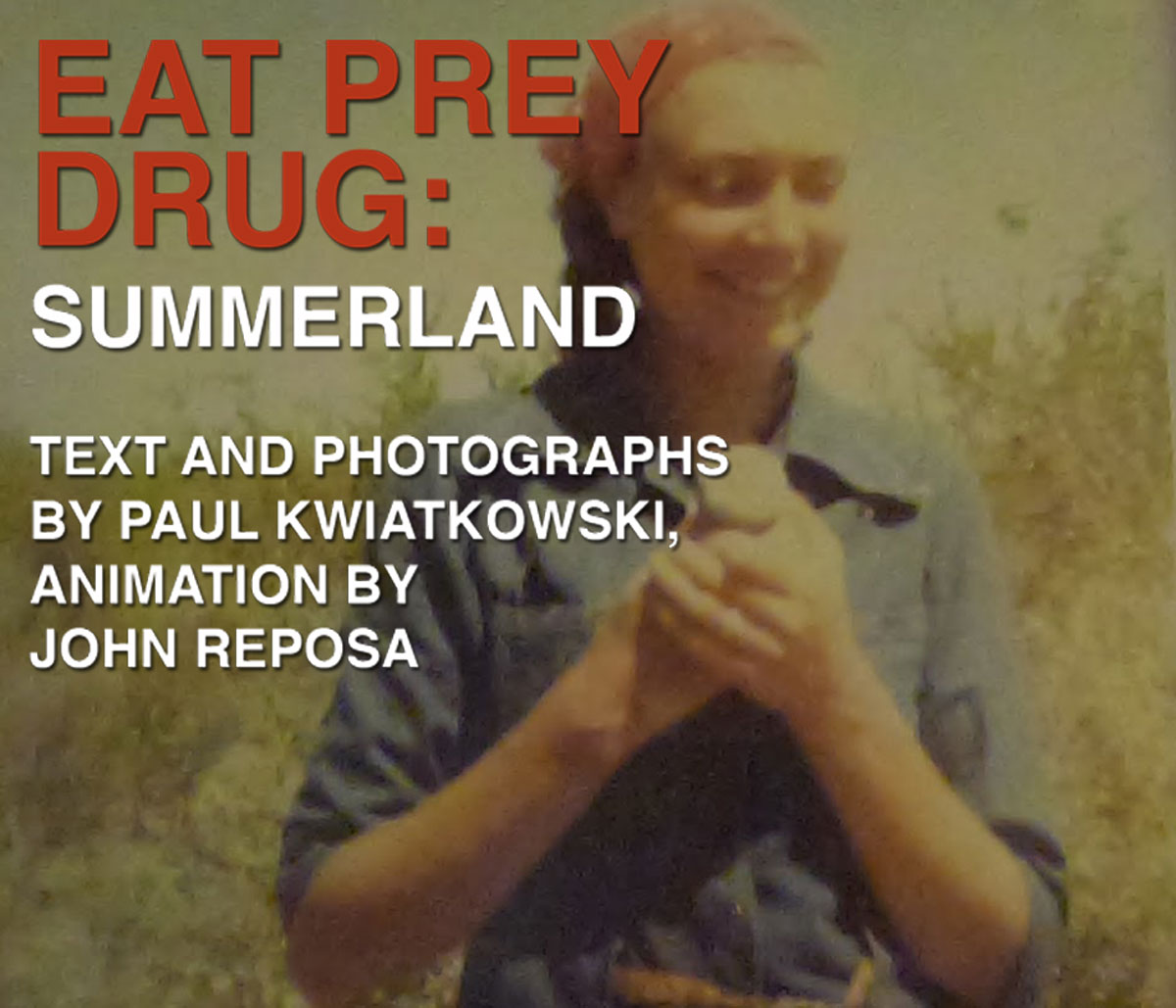
-
Editor’s Note: This is the final chapter in Paul Kwiatkowski’s cross-country assignment to investigate alternate perceptions of consciousness. Click here for part one [NSFW], two [NSFW], three [NSFW], four, five, six and seven.
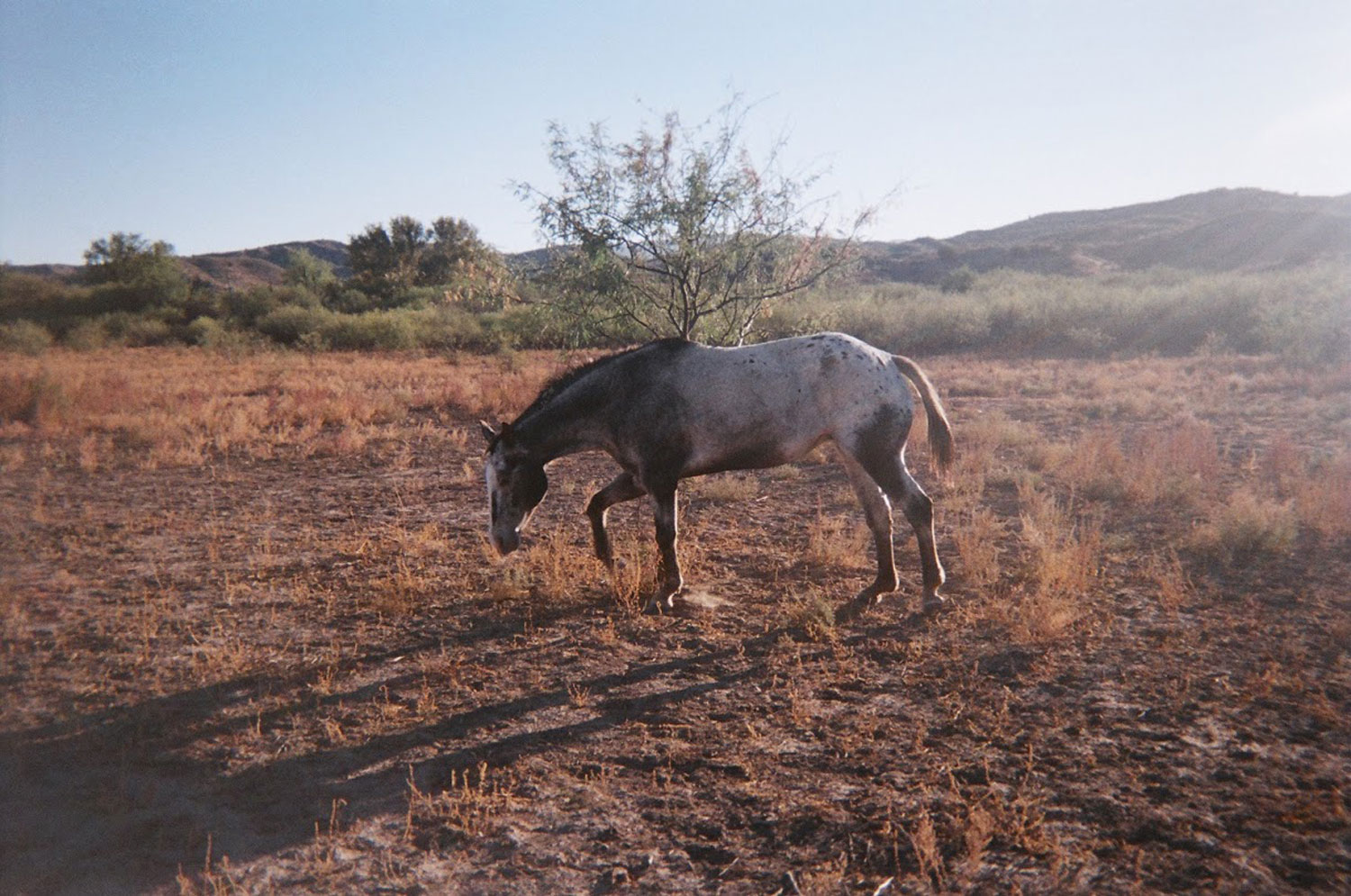
-
The signal travels by waves that hug the ground rather than radiate into the atmosphere. A control tower transmits up to a 30-mile radius, the signal dropping off sharply outside the border.
The signal can trigger flashbacks.
-

-
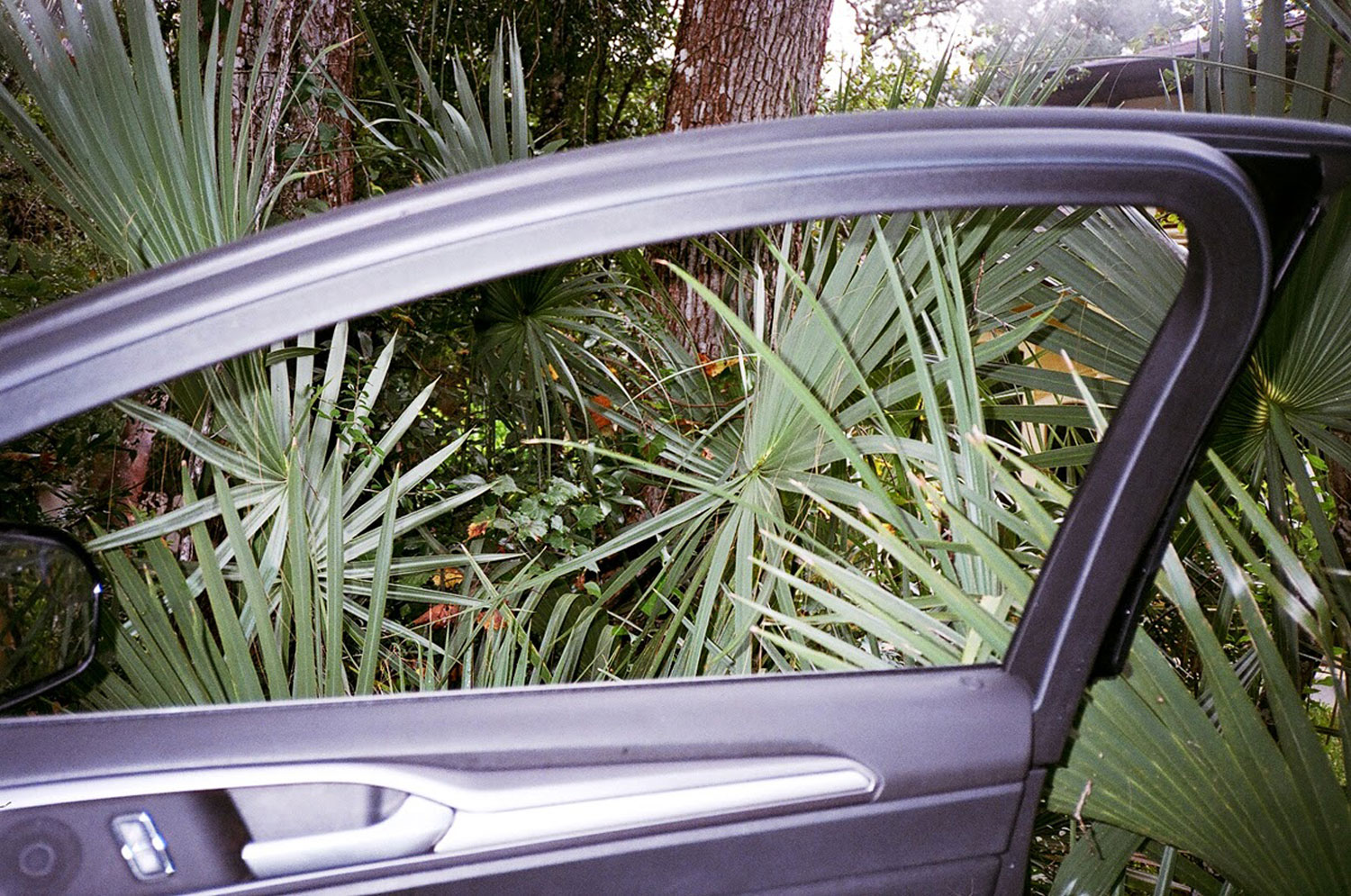
Dayton, Florida
-
Thanksgiving. My parents had two fewer dogs than they did during the previous year. They didn’t bring it up; I didn’t ask.
The remaining dogs were a Pug, Toni, and a black Pomeranian, Frankie. It was the first time Toni hadn’t recognized me, much less greeted me at the door. His eyes had gone from black marbles to milky grey yolks, his tongue now hung out of the side of his mouth.
During dinner my father revealed that all of our previous dogs’ cremated ashes were buried behind one of the patio walls. He didn’t specify which one.
-
I sat alone on the patio, chain-smoking a forgotten pack of American Spirits that I had found in my coat. They belonged to Leigh, a weekend fling. We met almost a year ago at a nightclub in the Lower East Side. It was her first time visiting New York. Back home in Phoenix she worked as a waitress at a tacky chain restaurant known for the waitstaff’s cleavage. The triumph of taking home a sports-bar waitress was a suburban fever dream realized.
Before Leigh returned to Arizona, we hooked up one last time, during which I drunkenly agreed to — maybe — one day meet her in Phoenix. If I came, she promised to drive us to a peyote church out in the desert. I’d never done peyote before. Leigh said that the trip would totally be my style, that the experience was like dying.
-
I smoked Leigh’s cigarettes until I was lightheaded. I remembered the sound of my favorite dog Felix’s nails scratching against the kitchen’s ceramic tile floor. I pictured the silly games he played for attention when I came home from school in a bad mood.
I searched the newly spackled patio walls for discolorations, running my hands over them to feel for any differences in texture, imagining the spot Felix was buried.
-
Phoenix, Arizona
-
Because my arrival is last minute, Leigh has to work for the first week of my visit. Without a car or friends or reason to wander the highways of Phoenix, I stay behind at home with her roommate, Dezi, who is on ambiguous medical leave from her hostess job at a local nightclub.
-
Dezi sleeps in shifts, never for more than a few hours. Her room is littered with Benadryl boxes and orange prescription pill bottles. She complains about kidney disorders that prevent her from doing things like drinking orange juice and, apparently, working. She is collecting disability and seems to be on permanent medical leave from everything.
One day Dezi has an allergic reaction to the bleach she uses to dye her hair platinum. She breaks out in hives and complains of her palms itching. The outline of blood around her nose is, I guess, also from the bleach. Before her psychosis escalates into a panic attack, I bring Dezi a Xanax along with a glass of whiskey. Her eyelids quiver while she sleeps.
-
The opiates Dezi shares with me make my stomach clench. On television I catch fragments of news about the blizzard in New York. Too high, my point of view is muffled like I’m watching through the circular eyeholes of a cheap mask. Back east, three nebulous storms are merging into one catastrophic blizzard. There is a pan and scan of an aerial nightshot of New York City submerged in icy gloom.
-
I hear Dezi responding to the small distant voice crackling through the TV. Blue light from it expands over the living room in a thin gradient of twinkling flashes. The table is littered with pipes, beer bottles, lighters, screens, foils, vials, baggies, vaporizer parts, credit cards edged with white residue and half-finished nightcaps.
-
The front door slamming shut pulls me out of my stupor.
Leigh is backlit by the morning sun, frozen in the doorway.
Dezi and I are pants-less, tossed on opposite ends of the couch. She is wearing my shirt.
Trying to cover up anything is pointless now.
Leigh cannot hide her disgust.
Unfortunately, I can’t leave.
-
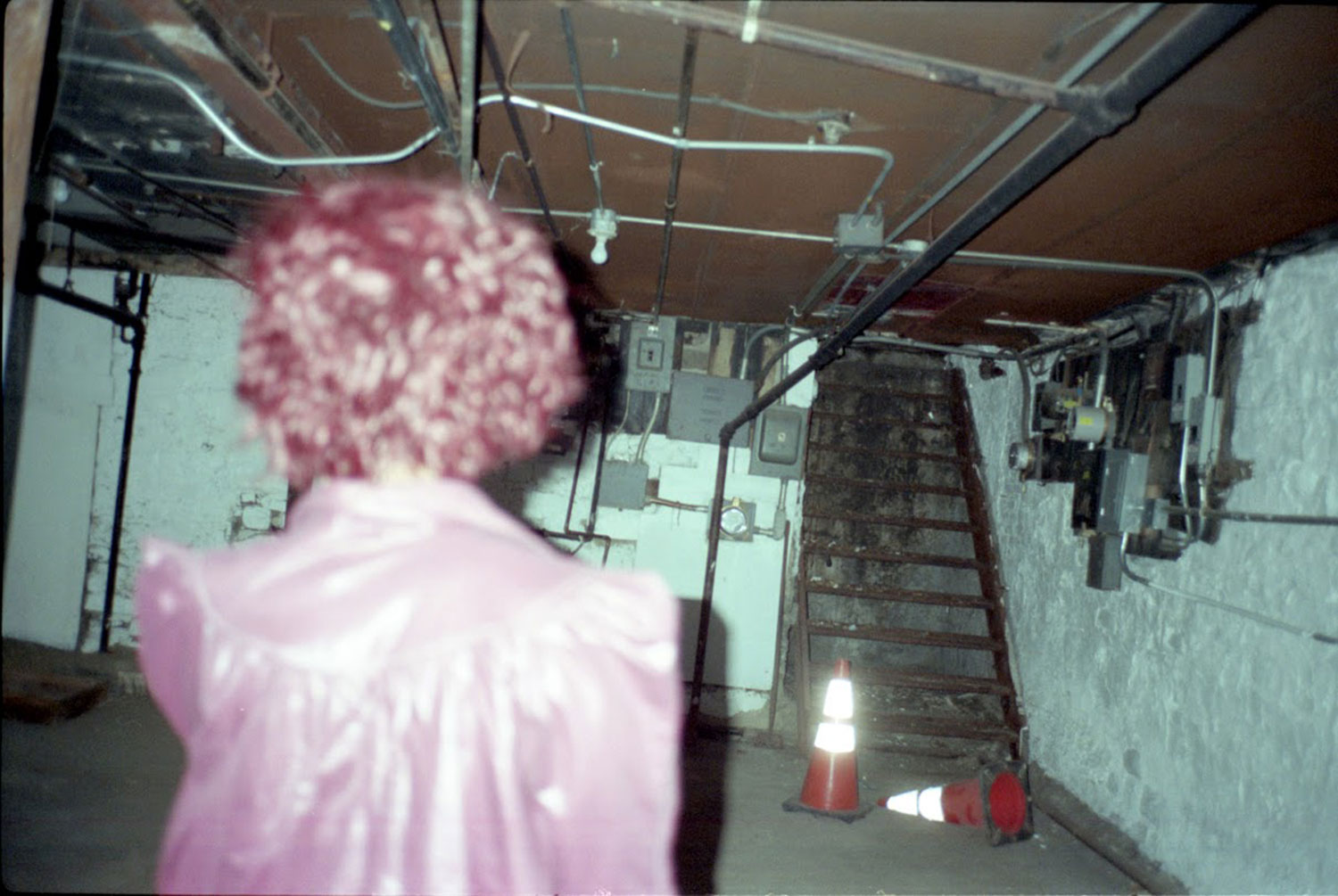
Queens, New York
-
Online, on television and on the radio, storm warnings urged us to ration food and water. New York was in a tailspin of anticipation.
I was certain that this meteorological boogeyman would be all media hype, another advertising blitzkrieg to sell oversized cars and boner medication — or, better yet, a covert election tactic designed to placate frightened voters into thinking that their government has everything under control when, in fact, nothing will happen.
-
It turned out that my plane ticket to Arizona was for one of the last flights out of New York.
-
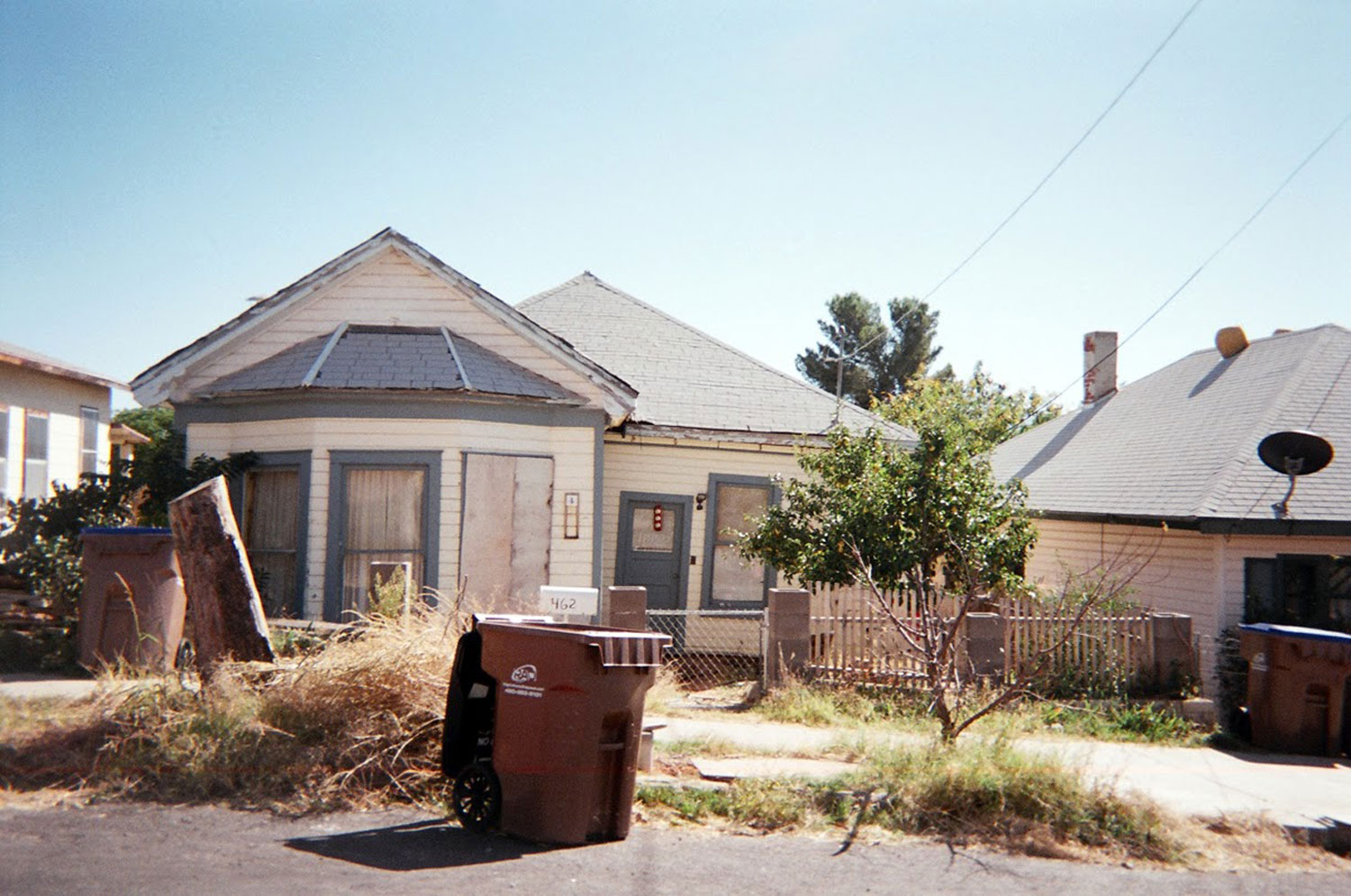
Miami, Arizona
-
I drive Leigh’s Ford Explorer too fast, brooding, focusing on variations of desert grandeur. In the side mirror I see my expression galvanize into a leer.
Any attempt at conversation with Leigh flatlines more than usual. I watch her hair fluttering in the wind, seeping out of the rolled-down window. Leigh’s mouth doesn’t change expressions as she stares straight ahead. After a few hours she passes out in the backseat, but even asleep she looks let down.
-
I flip between radio stations searching for blizzard updates. Where I live in Queens has no electricity, the streets are gorged with snow and people are fighting over groceries. Farther upstate entire communities are trapped.
My return flight is postponed indefinitely. When Leigh hears the news her body deflates into a sigh. We both know it: She is stuck with me. For this to play out in a civil manner, it is imperative that I play ball. Walking out on a girl like Leigh in a place like Arizona is not an option. I picture myself stranded, walking sunburnt along the highway, a pitiless drifter smothered by car exhaust.
-
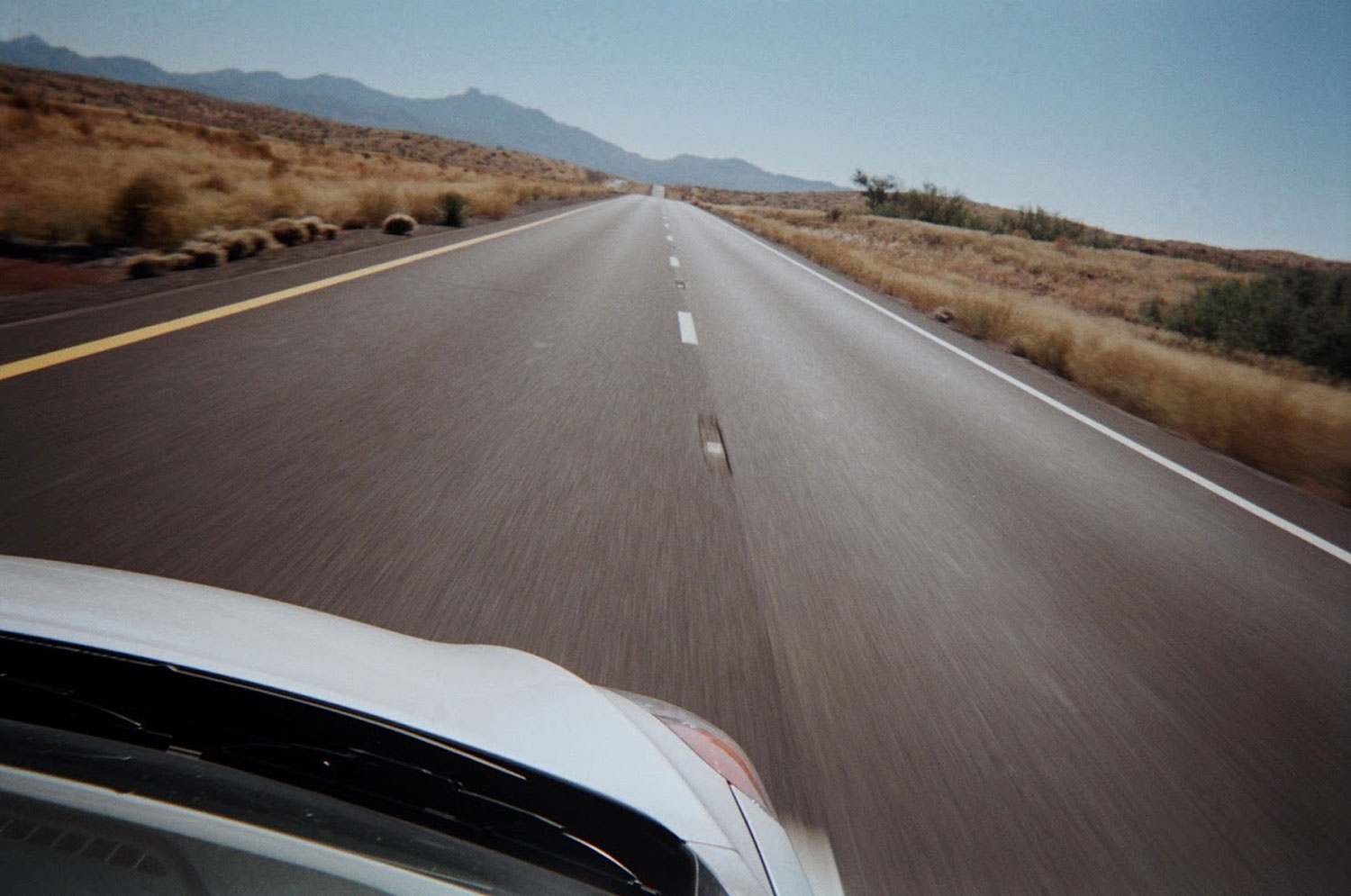
Klondyke, Arizona
-
At sunset we pass the canyon’s edge onto church property. The setting sun, a jagged triangle of pink, purple and yellow light, spills over the ridge into the basin. The “church” is a rustic desert-style home, 20 minutes off a paved road, over an hour away from a gas station.
The church requires we fast on the property until the following morning, when we’ll ingest the peyote. Instead of eating, Leigh and I take mostly silent walks through a dried-out riverbed. In the desert I feel infinitesimally small and utterly trapped, like being caught inside a giant aquarium.
-
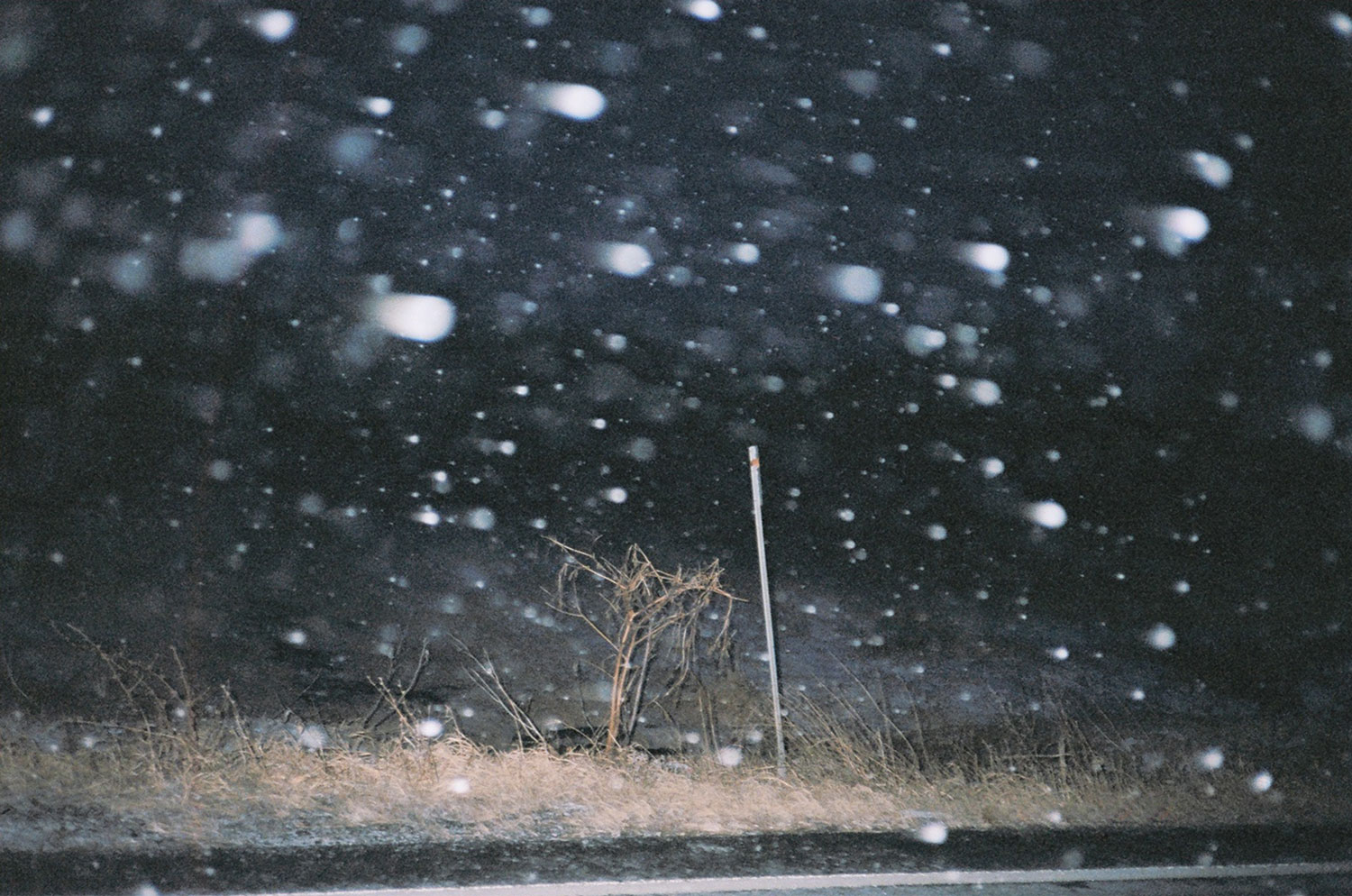
Queens, New York
-
Out on the balcony I felt the churn in air pressure. The storms hadn’t converged into a blizzard, yet the sky had already turned opaque. Severe snow condition notices flashed on the bottom of every channel. Stores and even roads throughout New York were already shut down.
Police patrolled empty avenues. The shrieks of teens and ambulance sirens were hushed, and the robotic pop music sedating idle cab drivers faded. It was the first time I could remember relief from the rummaging of bottle collectors sifting through the downstairs nail salon’s dumpster. The silence was wonderful. Then the sound of the encroaching storm came on like broiling meat.
-
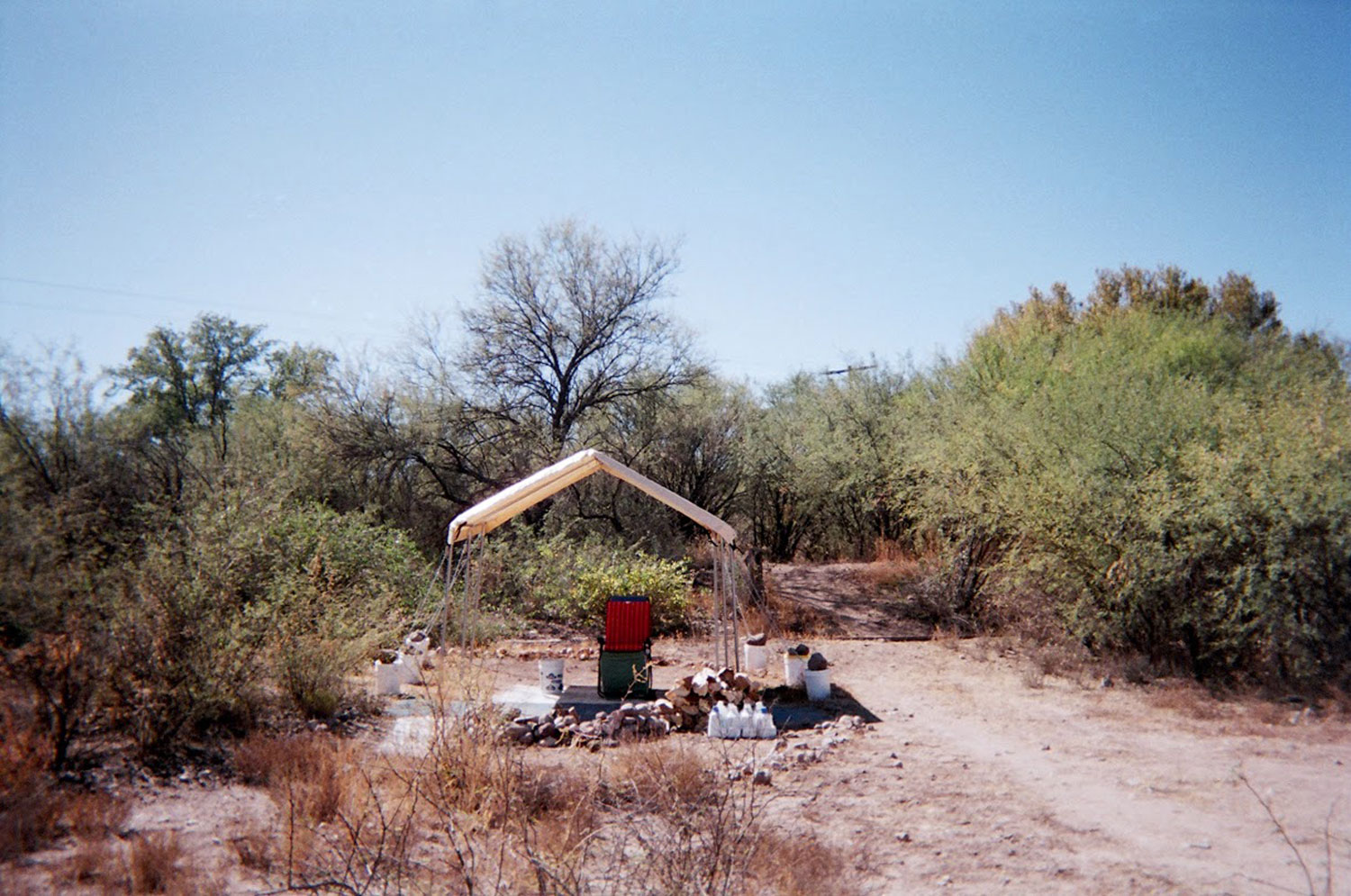
Klondyke, Arizona
-
After we’re handed our peyote jars, we separate to opposite ends of the property. I sit outside the shade of my designated pavilion, tanning in my underwear and choking back sips of peyote. It tastes awful, like a chalky mix of dirt and grass.
I wonder what Leigh is going through. I can’t imagine her alone without cellphone service. Being around her has left me with a feeling I’ve either never had or have been resisting for a long time now: She reminds me of how far I’ve drifted from recognizing the best in people, how comfortable I’ve become with walking away.
-
At night the temperature drops from 90 degrees to 40. My body hasn’t absorbed enough sun; it’s warmth lifts from my skin. Yelping baby coyotes replace the festering sound of flies. The landscape is all shadows, no dimensions. Without the vanishing point of vistas to concentrate on, my mind veers inward. I become lethargic. A bat swoops down and flickers across my face. I throw up a greenish-black, star-shaped puddle beside a Martian cactus. I keep vomiting so hard that my legs hurt.
-
Steering the trajectory of my thoughts is impossible. Whatever unconscious membrane is responsible for fielding irrelevant information has dissolved. All I feel is inverted, though I’m blasting rampant distress signals out in all directions. I feel foolish for thinking I’d find access to a higher self. I defied myself into thinking I could sop up wisdom from a self-imposed transcendental state. I hoped to hear there’s nothing to worry about.
-
Convulsing through cold sweats I zero in on my selfishness. Every guilty memory surfaces simultaneously to bite its way out. The experience is, in the words of Aldous Huxley, “of an indefinite duration or alternatively of a perpetual present made up of one continually changing apocalypse.”
This isn’t how I pictured my link to the sublime playing out.
-
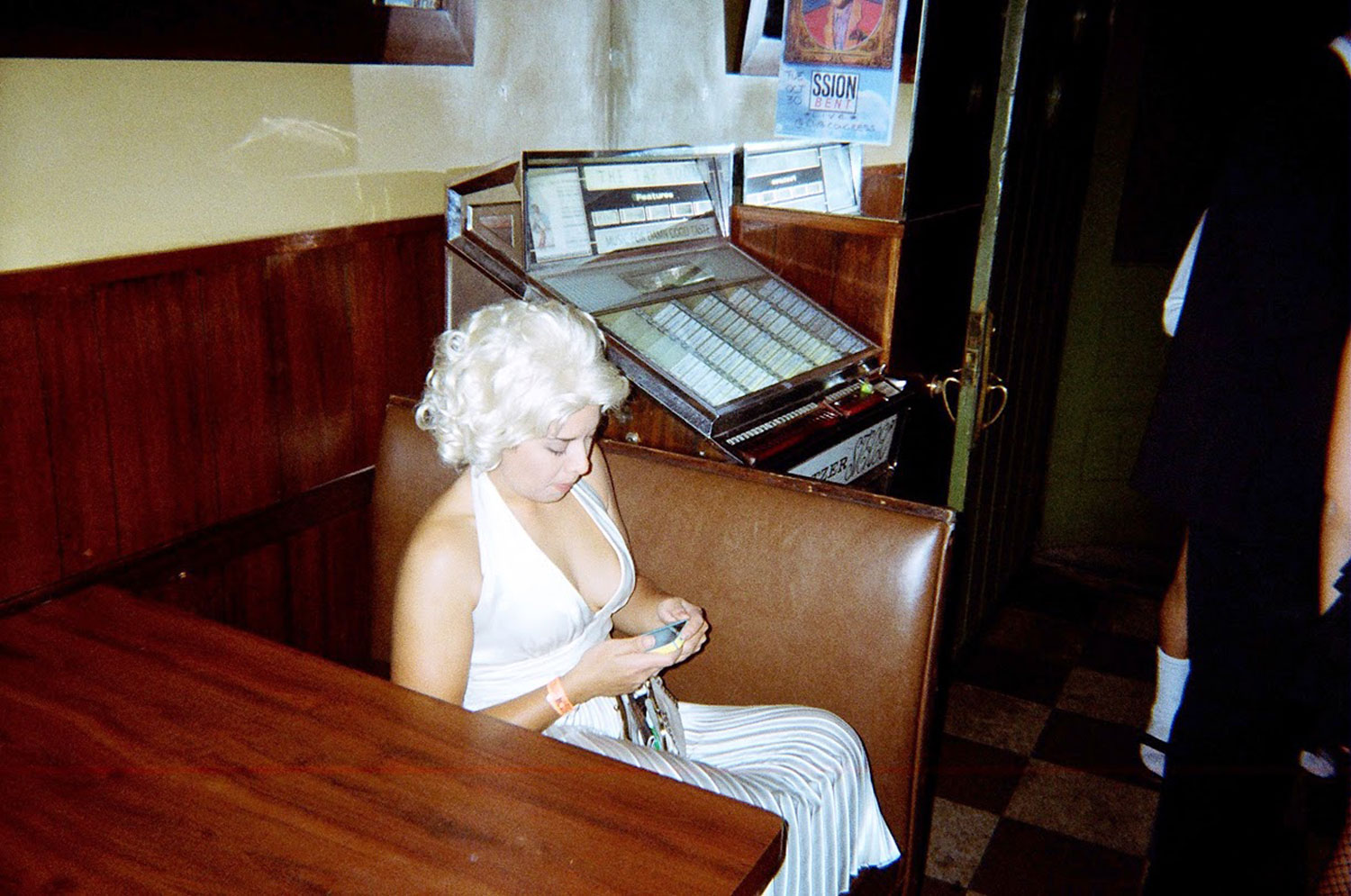
Tucson, Arizona
-
The following morning, still without any sleep and battered from my guilt trip, I stop with Leigh at a strip mall to forage for our first meal in two days. As the peyote worms its way out of my brain, we eat drive-thru BBQ in the car, parked between two blocky department stores I’ve never heard of.
When I asked Leigh about her peyote experience her body language radiates hurt. She says it was “private and too difficult to describe.” I try my best to be mindful, but it’s too late. Behind the strip mall the sun rises over Arizona from a nest of geometric clouds.
-
I spare us six uncomfortable hours of driving back to Phoenix by routing a flight from Tucson to New York. The tendons in Leigh’s neck finally relax as we pull up to the terminal. We hug over the inner console.
-
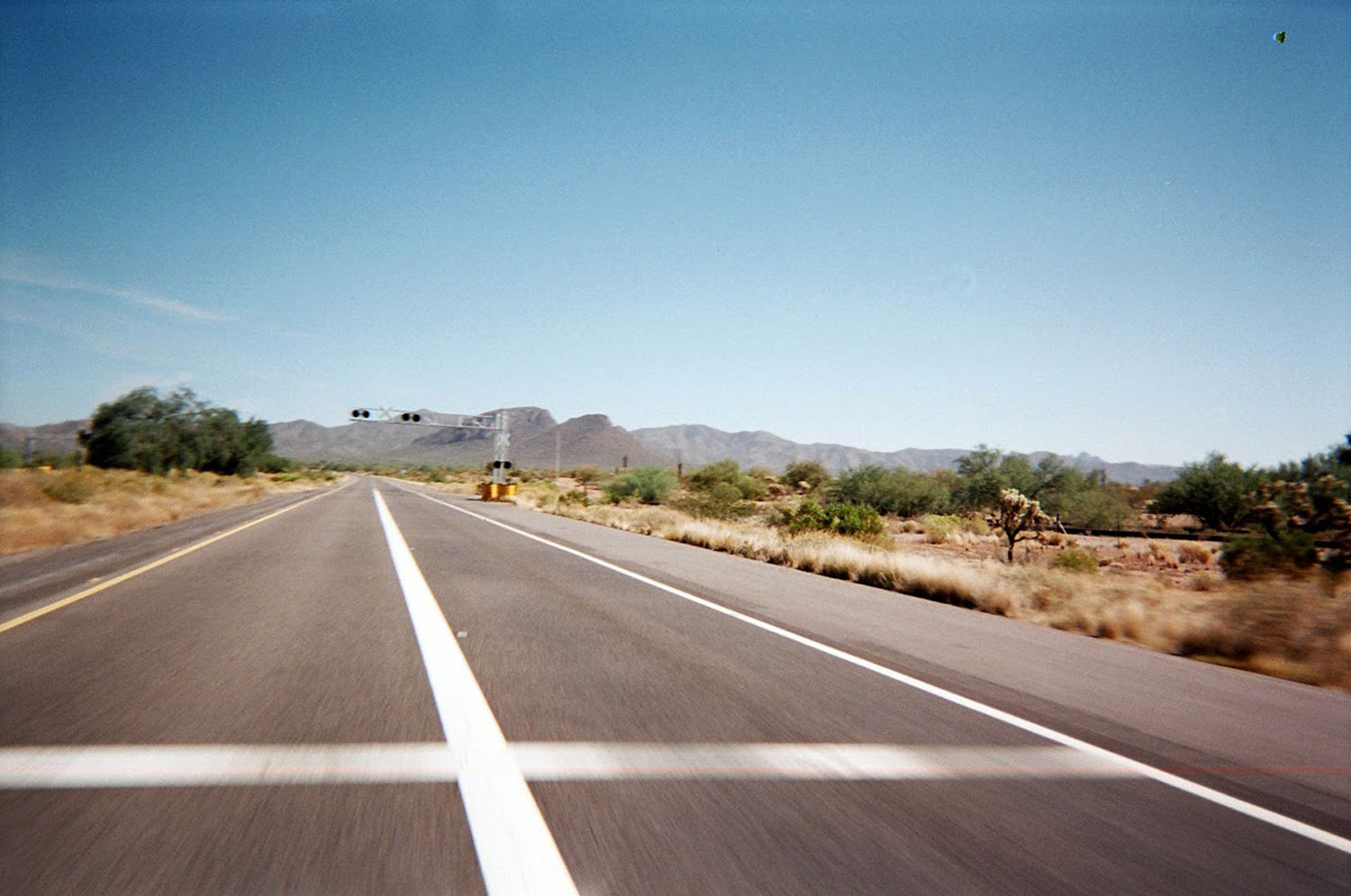
-
Queens, New York
-
Leading up to my flight to Arizona I kept having that half-asleep sensation of falling and the ground rushing up and spasming awake seconds before you meet.
One last time, before leaving for the airport, I breathed in the salon fumes seeping through my apartment walls while looking back on all of the material I had collected over the last few months. I was just starting to like the way that, every time I stared at the ventilation shaft for long enough, my mind would go blank.
-
After unwrapping a Taco Bell chicken burrito, I sorted through all the photos and notes I’d taken since Los Angeles. The smell of grease, meat, cheese and hot sauce brought me back to driving cross-country. I tried to fill in the gaps between parking lots, rest stops, strip malls, fast food joints, motel rooms and my car. Where the hell were we living? I saw America as a sun-bleached plastic toy slumped over an ancient landscape, one inherited through imaginary borders. Boundaries are what best represent us.
When I thought about where I’d be in another month all I could picture was wisps of light smeared over asphalt.
-
-
Beyond my cab’s windows, the streets were abandoned, prepared for the havoc promised. Coasting down the Grand Central Parkway, I noticed that the air traffic above Willow Lake had reduced to a trickle as flights thinned out. I held my breath, squinted, counted the seconds until New York receded in the cab’s rear-view mirror, lost in the haze of JFK, LaGuardia or any other airport in the world.
-
Right then, I hoped, most of all, that this peyote thing in Arizona would remove the sting of always needing to leave. Sticking around had become too costly.
As Americans, our consciousness is the triumph of isolation over all. Being adrift is what we do best.
-
“I’m more American than I am human.” – David Nelson
-
-
Share on FacebookShare on Twitter
Read More In This Series
Or Buy Paul Kwiatkowski's Book
And Every Day Was Overcast
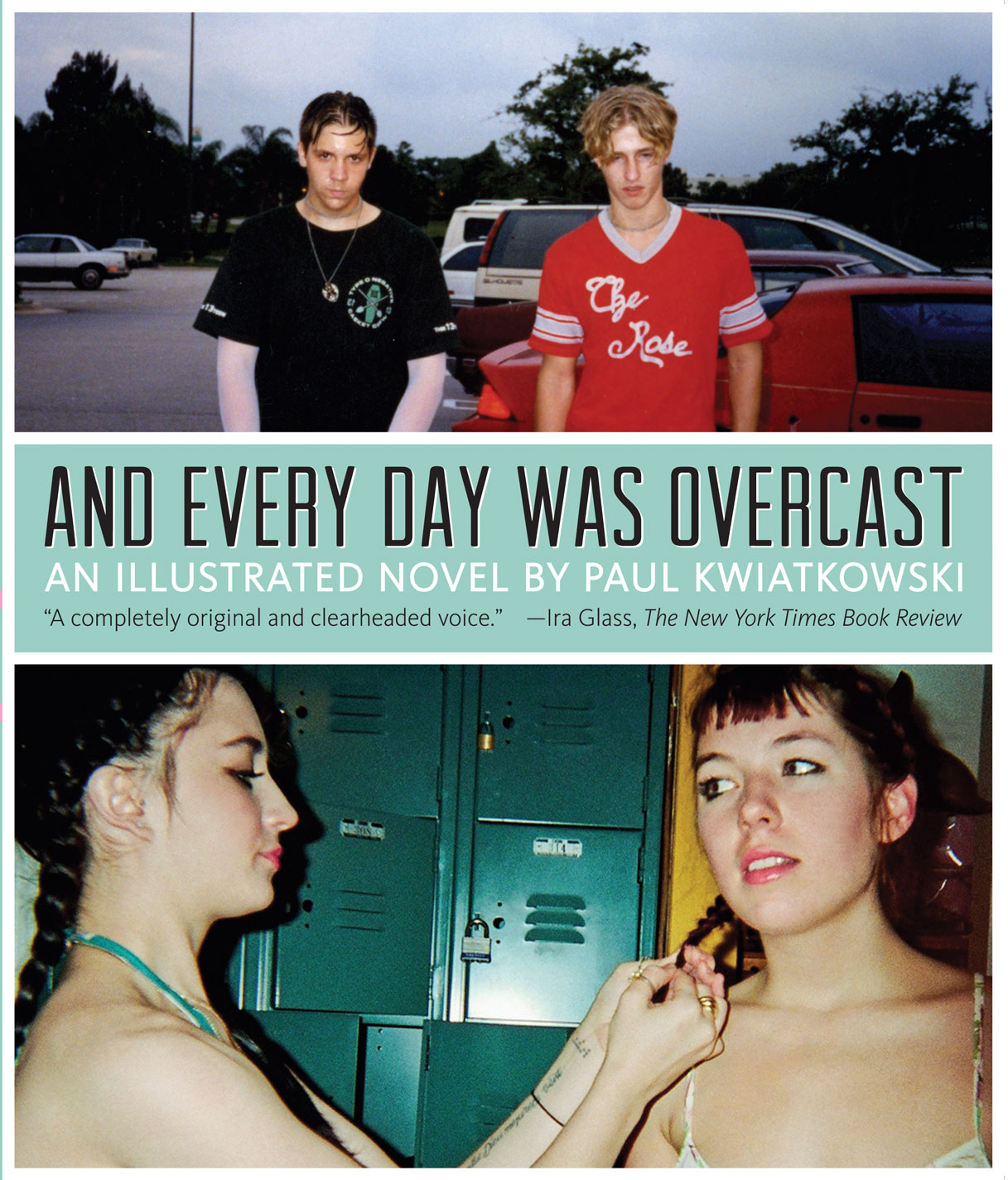
Out of South Florida’s lush and decaying suburban landscape blooms the delinquent magic and chaotic adolescence of And Every Day Was Overcast. Paul Kwiatkowski’s arresting photographs amplify a novel of profound vision and vulnerability.
$29.95
Eat Prey Drug: Summerland
Text and Photographs by Paul Kwiatkowski, Animations by John Reposa












